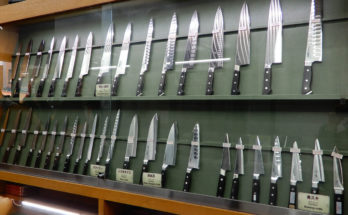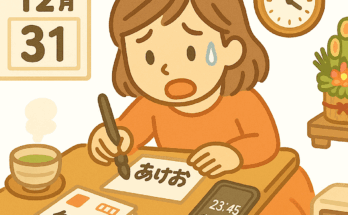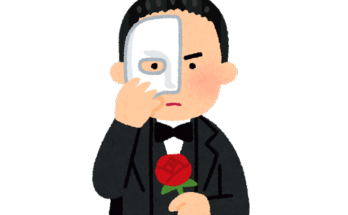Welcome to my blog about enjoying the Japanese lifestyle in September.
It is so hot this year, isn’t it?
The WMO, World Meteorological Organization, said, “The highest global average temperature may be recorded this year.
António Guterres, Secretary-General of the United Nations, said, “The idea of global warming has ended, and the era of global boiling has arrived.”
Instead of these trends, I will introduce some seasonal events in September in Japan.

Seasonal events Part Ⅰ: Emergency training “防災訓練”
September 1st is Disaster Prevention Day in Japan. A big earthquake occurred on 1st September 1923 around the Kanto area. Around this day, we join some training actions for some disasters as if an earthquake really happens.
I suppose, there are some situations, for example an earthquake mainly at school, where we first hide ourselves under a desk, putting on a hat that is called a prevention hat “防災頭巾,” then we go outside to gather at a place of evacuation.

Another example is a fire at the office. First, we put on a helmet and listen carefully to the information center. This allows us to walk, then we carefully avoid areas with fire and smoke and go down stairs.
I remember going down over 30 floors in my case. It was almost another training exercise. We gather at an evacuation place, then we often try to use a fire extinguisher.
Preparations are good actions before something happens.
Speaking of preparations for disaster, I have several bags in my room as emergency bags with some goods, like in the photo.
I check the expiration date of water or foods each September because the shop sells those goods in this season.
We sometimes eat emergency foods after we buy new ones.

The government says,
https://www.gov-online.go.jp/useful/article/201108/6.html
Stockpile for example
| Water | Three litter per person each day, for three days |
| Food | Rice( five servings), biscuit, chocolate, hardtack at least for three days |
| cloth | Underwear, outfits for wind or rain |
| items | Toilet paper, tissue paper, candle, match, portable stove |
Seasonal events Part Ⅱ: Otsukimi “お月見”
We have a custom to see a beautiful and bright full moon in autumn, when the air is cool and fresh in this season, approximately the 15th night “十五夜.” Not only seeing a full moon, but also eating rice dumplings which look like a moon.
It is said that it started around the Heian-era almost 1,300 years ago. It was introduced from China. It was spread among nobles. They enjoyed drinking, writing poems and playing wind and string instruments on the ships.
It is called Otsukimi, and it means seeing the autumn full moon.
Actually, it is the 29th of September this year. Why is it in September?
Mid-autumn moon,”中秋の名月,” is in September. Autumn in an old lunar calendar included July, August and September, and one month was added to a new calendar, so the middle placed at September.
Why do we eat rice dumpling at “お月見? It is to show thanks for the harvest by displaying offerings like the moon. Fifteen dumplings are piled up like a pyramid on the 15th night. Some old songs exist for “お月見” moon and rabbit.
By the way, Japanese folklore says there are rabbits on the moon.
In short,
“Long long time ago, there was a rabbit, fox and monkey. One day, an old man begs them to give him something to eat. The monkey gives him nuts, the fox gives him fish, but the rabbit fails to give anything. In the end, the rabbit dives into the fire, saying please eat me. Just like a sacrifice or donation.
Actually, the old man was a god to test their activities. He feels pity for the rabbit, so he rebirths a rabbit on the moon, as it is a good role model.“
It is said that this story relates to Buddhism.
They say a rabbit makes rice dumplings for an old man or makes food by itself to avoid the difficulty of getting something to eat. From the ground, ancient people might see black shades on the face of the moon which resemble a rabbit and instruments for making rice dumplings.

Seasonal events Part Ⅲ: Oktoberfest “オクトーバーフェスト”
Probably, you know about Oktoberfest. It is a beer festival held in Germany.
It is more viral, so there are many countries and places which hold this event.
Its origin is to give thanks to beer and the harvest, similar to “お月見.”
It may have started about the year 2000 in Japan, so it has almost become a Japanese tradition.
YOU SAY September, NOT October, BUT it starts from September. It should be done by the 1st Sunday in October in Germany, and there are a few weeks to enjoy these events.
In addition, it is said that it isn’t called Oktoberfest in Germany. It is recognized as Wiesn, meaning “green land,” which originated from the place of the biggest venue at Theresienwiese.
And at the opening ceremony, “Ein Prosit der Gemütlichkeit” is sung.
In Gemany : “Ein Prosit, Ein Prosit, der Gemütlichkeit Eins, zwei, drei, g’suffa! Prost!”
In English: Cheers, cheers, with coziness, one, two, three, drink up, cheers

In conclusion,
Thanks to food or something, we have several songs in the world.
Let’s enjoy September. Cheers!

I have been learning English for about 3 years. I have joined many kinds of English schools or social networking to get knowledge and skills for English since then.
My target for learning English is not so clear but my curiosity leads me to make a conversation with everyone in the world with English.
See you somewhere!





 HTJ has a YouTube page! Check it out
HTJ has a YouTube page! Check it out